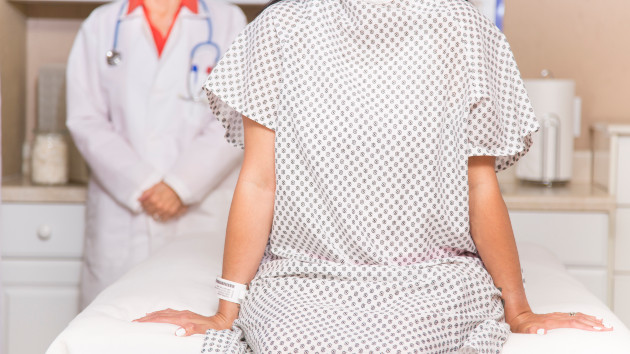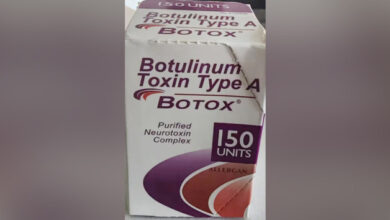Florida's six-week abortion ban 'catastrophic for the region,' activist says

(NEW YORK) — Despite abortion being on the November ballot in Florida, pro-abortion groups say a six-week ban going into effect next month will have devastating consequences for women in the Southeast.
The Florida Supreme Court issued two decisions earlier this week, allowing a question on the November ballot that would enshrine abortion rights in the state’s constitution and upholding the state’s 15-week abortion ban. A trigger ban will now go into effect on May 1, prohibiting abortions at six-weeks gestation, before most women know they are pregnant.
Florida, despite its 15-week limit, has been a key point of access to women across the southeastern U.S. living in states that have ceased nearly all abortion services due to bans. At least 14 states have ceased nearly all abortions since the U.S. Supreme Court overturned Roe v. Wade, ending federal protections for abortion rights.
In Florida, the proportion of abortions provided to patients traveling from out of state increased from 5% in 2020 to 11% in 2023, according to the Guttmacher Institute.
In 2023, there were 8,940 more abortions in Florida compared to 2020 — a 12% increase — according to Guttmacher. Increased travel from out of state accounted for 58% of the state’s overall increase in abortions between 2020 and 2023.
A Woman’s Choice, an abortion clinic with a location in Jacksonville, Florida, told ABC News that about half of the patients it sees every month are from out of state. The clinic would not disclose how many patients it treats at the Jacksonville location, but said it had a large increase in patients after neighboring states began enforcing abortion bans.
With Florida bordering Alabama and Georgia — where there are severe restrictions — the closest point of access for Floridians to get care past 12 weeks gestation is now Virginia or New Mexico, pro-abortion activists told ABC News.
Abortion care is allowed in North Carolina up to 12 weeks. However, one maternal fetal medicine specialist, who left the state due to the ban, told ABC News that providing care after 20 weeks was “fundamental to her practice” as she often diagnoses fetal anomalies sometime between 18 and 20 weeks gestation.
A Woman’s Choice clinics, which has a facility in Danville, Virginia, says that location is over 500 miles from their Jacksonville clinic — an over 8-hour drive each way.
And, there could still be more barriers for patients able to travel that far for care in Virginia.
“I’m not sure if the infrastructure [in Virginia] can accommodate all the influx of patients. It’s something that I’m really concerned about and I know providers have been working incredibly hard to see as many patients as [they can] safely and compassionately,” Amber Gavin, the vice president of advocacy and operations at A Woman’s Choice, told ABC News.
“But I do think that folks fall through the cracks especially folks who are already marginalized in our healthcare system,” Gavin said.
Impact of six-week bans
The six-week ban going into effect is “devastating” and “catastrophic for the region,” Mini Timmaraju, the president and CEO of Reproductive Freedom for All, told ABC News.
“There is really no distinction between a six-week ban and a total ban on abortion,” Timmaraju said.
According to Guttmacher, six-week bans have “massive impacts on abortion provision.”
In South Carolina, the number of abortions provided in the formal health care system decreased by 71% after the state started enforcing the six-week ban on Aug. 23, 2023. The state provided 250 abortions in September 2023 compared to 870 in August 2023, according to Guttmacher.
After six-week bans took effect in Georgia and Texas, there was about a 50% decline in abortion caseloads, according to Guttmacher.
Despite exceptions that allow abortions in some cases — which differs depending on the state — and federal law which requires physicians to provide life-saving care to patients, many patients are unsure what kind of care they can receive.
Bans “create a lot of confusion and chaos for people seeking care” making it “a bit harder for people to access care, but it’s also gonna be harder for people to navigate when they can access care,” Candice Gibson, the director of state policy at Guttmacher, told ABC News.
“I think that there’s going to be a great need to educate individuals on what their rights are and also how they can access care,” Gibson said.
Americans United for Life, an anti-abortion group, said the court’s decision was “reasonable” in walking back the notion that a privacy clause in the state’s constitution provided protections for a right to abortion.
Asked about reports of patients unable to get care in line with exceptions to bans in Florida and other states, Americans United for Life said it is up to the legislature to “take a look at that issue.”
“If it decides that the right to treatment for truly medically necessary abortions isn’t sufficiently clear, it could legislate to protect that right,” Steven Aden, the chief legal officer and general counsel at Americans United for Life told ABC News.
Aden said the group does not support exceptions in cases of fatal fetal anomalies, proposing “perinatal hospice” instead.
“We cannot license or permit any human being to end the life of a human being. Even if it’s for purposes of compassion. That’s also why we oppose assisted suicide,” Aden said.
Care in Florida under the ban
A Woman’s Choice told ABC News the abortion clinic has already had to turn away patients under the 15-week ban, calling a six-week ban “devastating.”
“One of the reasons that this ban makes it one of the worst in the country is because Florida already has a state-mandatory delay law, forcing folks to wait 24 hours and it mandates two in-person trips to a clinic,” Gavin said.
“If in a few weeks a patient comes to us — let’s say they come to us in June — and they come in for their consult appointment and they measure at six-weeks pregnancy, we literally wouldn’t be able to see them the next day for their actual abortion appointment because they’d be past the gestational limit,” Gavin said.
For patients past the gestational limit, the clinic will have options: help from patient navigators who provide financial assistance for abortion costs, help finding care in another state or a referral to a pro-abortion adoption agency.
Gavin said it is also likely some Floridians will choose to take matters into their own hands and self manage their abortions, or they may be forced to carry their pregnancies to term. The clinic will remain open and offer a range of OB-GYN care including ultrasounds, HIV testing and STI testing.
Ballot Initiative
Pro-abortion groups and A Woman’s Choice told ABC News they were optimistic about abortion access being restored through the November election.
In all six states where there have been abortion questions posed to voters — including conservative state like Kansas — they have chosen to protect abortion rights.
Voters also overwhelmingly support abortion access, according to Gibson, who called the ballot initiative a “critical fight.”
A Woman’s Choice, which actively participated in collecting signatures for the initiative, said it will be raising awareness about the ballot question, telling patients at their clinic to vote to protect and restore abortion in Florida. It will also be holding a rally.
The National Latina Institute for Reproductive Justice told ABC News that bans disproportionately impact their community, which are more likely to be uninsured. The group, part of the campaign for the ballot initiative, said it will work to ensure that information is available in Spanish, to help overcome language barriers.
Americans United for Life told ABC News the group does not support the issue being left up to “popular majority vote.”
“We believe that the rights of minorities [in this case fetuses] shouldn’t be subjected to the popular vote of the majority,” Aden said.
“We hope that the people of the state of Florida will recognize that the proposed initiative is really an all-out regime of abortion on demand,” Aden said.
Timmaraju called the ballot initiative the state’s “best option at restoring access in the South,” but warned that a question on the November ballot is not an option in all states.
“There’s not that many states left where we can pursue a similar path,” Timmaraju said.
“Not every state has a pathway to get on the ballot because it requires you to go through the legislature and a lot of these southern states need a supermajority of Republicans and are several [election] cycles away from being able to pull something like this off. But in Florida you can go directly to the people and get on the ballot,” Timmaraju said.
Copyright © 2024, ABC Audio. All rights reserved.






